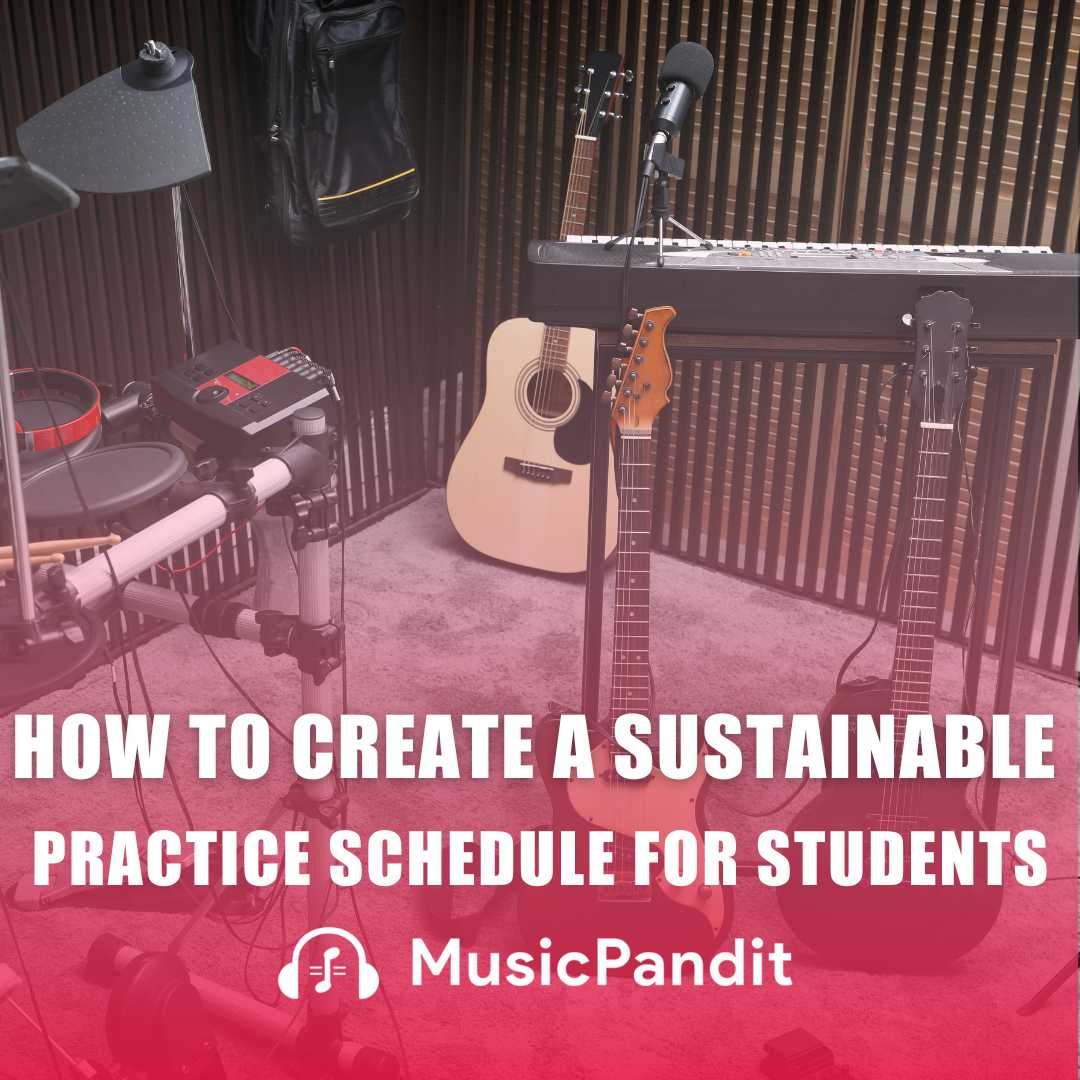Performance anxiety is experienced by both a beginner or an experienced performer. When you are just getting on the stage for the first time and you see a large crowd, it’s not uncommon to feel a bit anxious. Well, performance anxiety or what we commonly refer to it as “stage fright,” is basically a psychological condition characterised by a fear or apprehension related to performing in front of an audience. Physical symptoms such as increased heart rate, trembling, sweating, dry mouth, or mental symptoms like racing thoughts, self-doubt, and fear of failure can be seen in the individual. This can affect individuals in various artistic disciplines, including choir singing.
It is in fact a common issue faced by many choir singers. It doesn’t matter whether you’re a seasoned choir performer or just starting your journey, everybody can experience performance anxiety at any given time. Nonetheless, in this blog post we will provide you with some practical tips to overcome performance anxiety and excel in choir singing.
By implementing these strategies, you’ll not only improve your own singing abilities but also contribute to the overall success of your choir. With the right techniques and a strong mindset, you can overcome your anxiety. Let’s dive into the effective ways to conquer performance anxiety and enhance your experience in choir music and classes.
Why Does it Affect Some Choir Singers?
There are several reasons why performance anxiety can affect some choir singers:
Fear of Being Judged
Singers may feel anxious about being judged by other choir members, the audience or even their own self-criticism. Further, they tend to worry about making mistakes, singing wrong notes, or being negatively evaluated. All these can create a sense of pressure and anxiety.
Self-Doubt and Perfectionism
Choir singers normally set high standards for themselves and tend to strive for perfection most of the time. When they are chosen for performance, they may sometimes doubt their abilities and fear not meeting their own expectations. They further worry about letting down their choir director or conductor.
Lack of Experience or Preparation
Singers who are inexperienced or underprepared may feel anxious due to a lack of confidence to perform and in their skills or repertoire. The situation may also arise due to insufficient rehearsal time. Singers who have limited exposure to performing in front of an audience experience performance anxiety.
Past Negative Experiences
If the singers have had negative experiences in the past, such as forgetting lyrics, going off pitch or not coming in on time, or receiving criticism, this can create fear in them. They will be afraid of repeating those experiences in future performances. Such traumatic experiences of public embarrassment can leave a lasting impact on a singer’s confidence and contribute to performance anxiety.
High Stakes Performances
As performers you get opportunities to perform in different scenarios, venues, etc. Sometimes, there are types of performances that may carry more significance, such as competitions, recitals, or large-scale concerts with some important guests. Against such a backdrop there is immense pressure to perform exceptionally well. This can only intensify performance anxiety in choir singers.
Social Factors
In some cases, individuals may experience anxiety due to social factors such as being in the spotlight or discomfort with being the centre of attention. The presence of a large audience or unfamiliar surroundings can further contribute to their anxiety.
Well, performance anxiety is a common experience among choir singers and you have to note that it can affect even the most talented and experienced singers. The good news is that with awareness, understanding, and the implementation of coping strategies, choir singers can learn to manage and overcome performance anxiety. Once they win over their fears they will be able to fully enjoy their musical experiences.
What are Some Common Symptoms of Performance Anxiety?
As each singer is different, performance anxiety can manifest differently in each individual. However, some of the common symptoms experienced by choir singers may include:
Physical Symptoms:
- Increased heart rate or palpitations
- Sweating or cold, clammy hands
- Shaking or trembling
- Dry mouth or throat
- Nausea or stomach discomfort
- Shortness of breath or difficulty breathing
- Tension or muscle stiffness
Cognitive and Emotional Symptoms:
- Racing thoughts or difficulty concentrating
- Negative self-talk or self-doubt
- Fear of making mistakes or forgetting lyrics
- Worry about being judged or criticised
- Feeling overwhelmed or panicked
- Lack of confidence in one’s abilities
- Restlessness or irritability
Vocal Symptoms:
- Voice trembling or quivering
- Vocal tension or tightness
- Difficulty controlling pitch or tone
- Vocal dryness or hoarseness
Behavioural Symptoms:
- Avoidance of performances or opportunities to sing in front of others
- Difficulty sleeping or insomnia before performances
- Preoccupation with anxiety or fear leading up to performances
- Excessive practising or rehearsing in an attempt to alleviate anxiety
- Inability to fully express one’s vocal capabilities due to anxiety
You have to note that these symptoms can vary in intensity and duration depending on the individual and the specific situation. While it is natural to experience some level of nervousness or anxiety before performing it is concerning when the anxiety becomes overwhelming and interferes with a singer’s ability to enjoy their singing or deliver their best performance. When this happens it may be helpful to address and manage the symptoms through various coping strategies and techniques which we are discussing below.
Tips for Overcome Performance Anxiety in Choir Singing
Here are some tips on how to overcome performance anxiety for choir singers.
Understand the Root Causes of Performance Anxiety
In order to effectively tackle performance anxiety, you have to first understand its root causes. We have already discussed the common causes and symptoms above. By identifying these specific triggers that contribute to your anxiety, you can develop more targeted strategies to overcome them.
Preparation is Key
The easiest way to overcome this issue is by conducting thorough preparation. This will help you build confidence and reduce anxiety. Moreover, attend choir classes regularly and make the most of your rehearsal time. Practise the assigned pieces diligently, paying attention to all the singing elements such as your pitch, timing, and dynamics. Familiarise yourself with the lyrics and the overall structure of the music. When you are well-prepared, you’ll have a solid foundation for success and greater confidence on stage.
Visualise Success
Visualisation is a powerful technique that can help you combat performance anxiety. Before your performances or rehearsals begin, spend some time visualising yourself singing confidently and receiving applause from the audience. During this exercise, visualise the entire performance in your mind, including the venue, your choir members, and the audience’s positive response.
By repeatedly visualising success, you’ll train your brain to associate performance situations with positive outcomes thereby reducing anxiety and boosting your self-belief.
Focus on Breathing and Relaxation Techniques
Proper breathing and relaxation techniques can significantly reduce anxiety levels. Practise deep breathing exercises to calm your nerves before performances. Slowly inhale through your nose, allowing your abdomen to expand, and then exhale fully through your mouth, releasing any tension. Progressive muscle relaxation techniques can also help to relax your body and mind. By incorporating these practices into your daily routine, you’ll develop a sense of calmness that will carry over into your choir performances.
Embrace Mindfulness and Positive Self-Talk
Mindfulness in this case is nothing but being fully present in the moment and acknowledging your thoughts and emotions without judgement. Incorporate this exercise into your daily life and it will help you cultivate a sense of calmness and self-awareness. When you get up on the stage, focus on the music, the conductor’s cues, and the harmonies being created.
On the other hand, positive self-talk will help you effectively combat performance anxiety. Replace negative thoughts with positive affirmations, such as “I am well-prepared,” “I have a beautiful voice,” or “I am an important part of this choir.” You have to reframe your mindset as well as develop a more confident and optimistic outlook.
Seek Support from Choir Members and Instructors
Always remember that you’re not alone in your journey. If you need any help or someone to talk to, seek support from your fellow choir members and instructors. Do feel scared or ashamed to share your concerns with them. Instead, asking them for guidance. They will have most likely experienced performance anxiety at some point in time themselves. Thus, they can offer you some valuable insights and encouragement. Choir groups are usually a supportive network. You’ll feel more connected, supported, and motivated to overcome your anxiety.
How Can I Support My Fellow Choir Members Who Are Experiencing Performance Anxiety?
When it comes to supporting your fellow choir members there are several ways you can help them which can make a significant difference in their confidence and overall well-being.
Create a Safe and Supportive Environment
As a member of the choir wherein everyone is treated as a family with love and respect, you should create a non-judgmental atmosphere within the group. Always motivate each member to create a culture of support, respect, and be empathetic. You should also be mindful of your own language and actions, ensuring they promote positivity and encouragement.
Communicate Openly
One of the most helpful ways to help someone with performance anxiety is to initiate open conversations about this issue among the choir members. Make sure to do it in a compassionate and non-threatening manner. In this way you are letting the other choir members know that it’s normal to experience anxiety and that they are not alone.
Also, you can create opportunities for them to express their concerns, fears, and doubts. On your part you need to actively listen and show empathy during these conversations.
Offer Encouragement and Positive Feedback
Instead of any negative comments you should praise and acknowledge the progress and achievements of your fellow choir members. Positive feedback always helps in boosting their confidence and realising their strengths. You should often or whenever you get a chance, remind them of their unique talents and contributions to the choir. Additionally, you should encourage them to embrace their individuality and be proud of their voice.
Practice Empathy
Even though you may or may not have experienced this issue personally, be ready to put yourself in their shoes and try to understand their perspective. You can then validate their feelings and let them know that their anxiety is valid and understandable. If you have experienced it yourself, share personal stories or experiences of overcoming performance anxiety. This will bring some reassurance in them and inspire hope.
Provide Practical Support
Try to offer assistance with music memorization or vocal techniques if they express a need for it. You can also suggest helpful resources such as books, articles, or workshops on managing performance anxiety. If you see the need then accompany them during practice sessions or rehearsals for extra support.
Be a Role Model
While it is natural to be nervous before performances especially during big events you have to lead by example and demonstrate a positive and confident attitude. This applies to rehearsals as well. Meanwhile, you can show some vulnerability by sharing your own challenges and how you overcame them. This will inspire others and create a sense of camaraderie.
Encourage Self-Care
You need to emphasise the importance of self-care for managing anxiety. Tell your choird members to engage in activities that promote relaxation and well-being, such as deep breathing exercises, mindfulness, or physical exercise. You should remind them to take breaks and prioritise their mental and emotional health first.
While we have said many things already, you have to remember that everyone’s journey is unique. Therefore, it’s crucial to respect their individual boundaries and comfort levels. By providing support, understanding, and encouragement, you can help your fellow choir members navigate performance anxiety and create a more inclusive and empowering choir environment.
Conclusion
Having been in the music space for sometime now, we have seen these issues crop up in our students. We have to say that performance anxiety is a challenge faced by many choir singers, and it’s not only you. On the bright side, this doesn’t have to hinder your progress or enjoyment of choir singing. By implementing the strategies outlined in this blog post, you can overcome performance anxiety and unlock your full potential as a choir performer.
Do remember that overcoming performance anxiety is a journey that requires patience, self-compassion, and persistence. It might not be an instant resolution!!! But by understanding the root causes of anxiety, preparing diligently, and incorporating relaxation techniques, you can gradually reduce anxiety and build confidence in your abilities as a choir singer.
Believe in your abilities and the unique contribution you bring to the choir. With such thoughts you will be able to fully enjoy the transformative power of choir singing. In essence, as musicians and singers ourselves we want to say, embrace the joy of music, express your voice with confidence, and let your passion shine through every performance.















